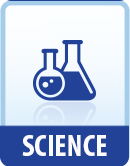|
This section contains 350 words (approx. 2 pages at 300 words per page) |
World of Microbiology and Immunology on Gladys Lounsbury Hobby
Gladys Lounsbury Hobby was one of the few women who were part of the extensive network that brought penicillin from the laboratory to the clinic. Discovered by Sir Alexander Fleming in 1928, penicillin was one of the first antibiotics. In her book, Penicillin: Meeting the Challenge, Hobby detailed the efforts in the early 1940s to discover a way to manufacture large amounts of penicillin, which would greatly aid in the treating of war wounded. In addition to her work as a microbiologist, Hobby wrote many articles and was a teacher.
Hobby was born November 19, 1910, in New York City. She received her Bachelor of Arts degree from Vassar College in 1931; she then attended Columbia University, receiving her master's degree in 1932 and her doctorate in bacteriology three years later. From 1934 to 1943, she worked on perfecting penicillin specifically for several infectious diseases as part of a research team at the Columbia Medical School, while also being professionally involved at Presbyterian Hospital in New York City. In 1944, Hobby went to work for Pfizer Pharmaceuticals in New York, where she researched streptomycin and other antibiotics, discovering how antimicrobial drugs worked. In 1959, Hobby became chief of research at the Veteran's Administration Hospital in East Orange, New Jersey, where she worked on chronic infectious diseases. Before retiring in 1977, she was assistant research clinical professor in public health at Cornell Medical College.
Retirement for Hobby meant continuing her work. Hobby became a freelance science writer and a consultant. It was during this time that she penned her book, Penicillin: Meeting the Challenge, about the drug's odyssey from the laboratory to the hands of the clinician. Hobby, having taken meticulous notes, detailed each researcher's contribution to producing a safe penicillin on a large scale basis. She also authored more than two hundred articles and was the founder and editor of the journal Antimicrobial Agents and Chemotherapy.
Hobby was a member of several professional organizations, including the American Association for the Advancement of Science, the American Academy of Microbiology, and the American Society of Microbiology. Hobby died suddenly of a heart attack on July 4, 1993, at her home in Pennsylvania.
|
This section contains 350 words (approx. 2 pages at 300 words per page) |


